Campaigners, who believe that gaming can improve mental health are facing a challenge that most people see as playing video games being only recreation, are those people wrong?
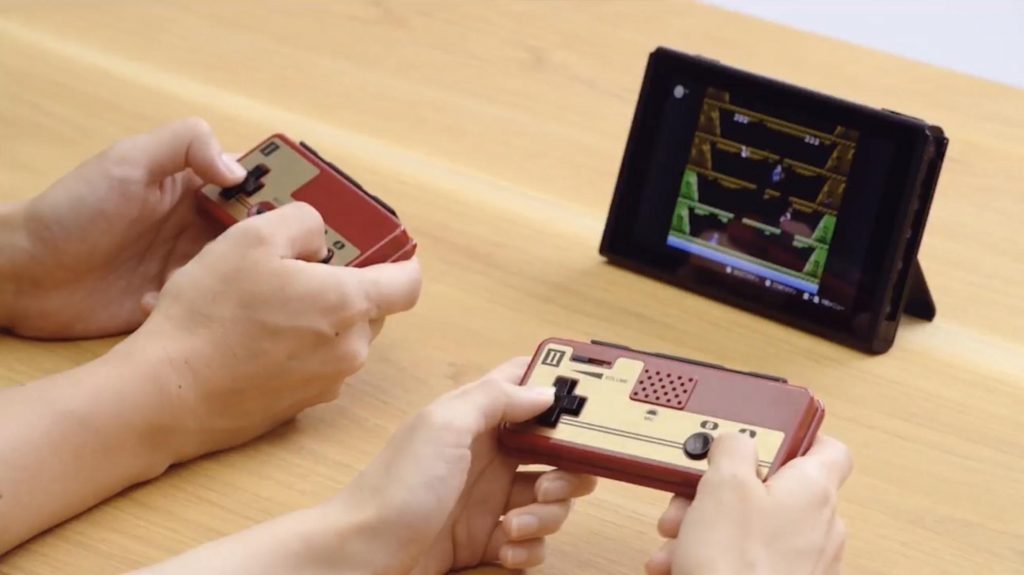
Andrew Collins was sitting with a cup of coffee when he overheard a conversation that would change the course of his career. It was the words ‘computer games’ and ‘mental health’ that first caught his attention.
“There is a group of young people who spends their time every weekend together in the gaming café, sit in the corner and have their chat,” says Andrew, who previously worked as a secondary school teacher in Cardiff. “I heard what they said, gave a thought on it, I’d like to say the ideas about video games and mental health basically come from them.”
He’d never thought that computer games might have a positive impact on people’s well-being but that overheard conversation in the café.
“Mental health is a big issue for young people,” says Andrew, “I think the only nice thing is that perhaps this generation is more aware of it, especially with everything that’s gone on over the last two years, like someone who has gone off to university and not been able to have the experiences they expected.”
Lilian Hubbard, a young man in Cardiff, a city with diverse cultures in the UK was suffering the anxiety brought by the pandemic, he felt his life is somehow out of control.
“Gaming helped bring my sense of control back during tough times in my life, especially over the COVID pandemic when everything felt as if it were falling apart,” says Lilian Hubbard.
The pandemic kept him away from his friends in reality, which increased his anxiety inside him.
“It’s always been a blessing to play with friends on Fortnite and have a laugh when I’m not feeling too good in the real world. When I was kept away from my friends for so long, it was great to feel as if I was running around with them again when gaming,”
says Lilian Hubbard.
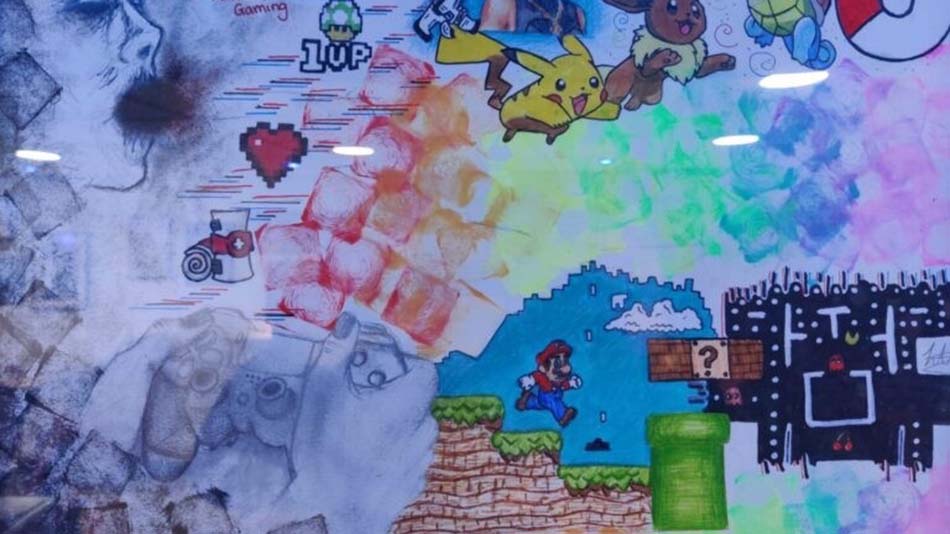
For the people who like Lilian, Andrew and his team started a campaign called ‘Never Give In’, which is aiming to prove computer games can improve young people’s mental health.
“Most of the people who have suffered from different kinds of social anxiety. Gaming offered them a gateway, almost like an escape from that because they could do their socializing without having to do that face to face. If this can make them feel better, why not?” says Andrew.
With the idea in his mind, he started doing his research and trying to find out if video games will be a workable way to help young people with their mental health with his whole attention.
For months he talked with those young gamers in Cardiff, some of them have some mental problems, and others claimed that video games do release their pressure in life.
After the conversation with some young people, he started to believe video games can be a way to help, especially during the lockdown, people cannot go out, if video games can work, then it will be a way to improve mental health without going out.
Research by Ofcom found that 62% of UK adults played some form of video game in 2020. Also, according to the cyber crew, over half of the young people aged between 16 and 24 played video games in the UK.
Based on one of the interviewees of the campaign said, video games are a community-based activity that allows people to connect but also seclude themselves if they want to. The borders of what one can identify with and/or become are your creativity and the game.
“I personally have struggled with mental health and identity quite a bit but having video games has helped me express all sides of myself and nurture parts of me that feel suppressed by the outside world, ” says Alicia Gil, an 18 years old artist in Cardiff.
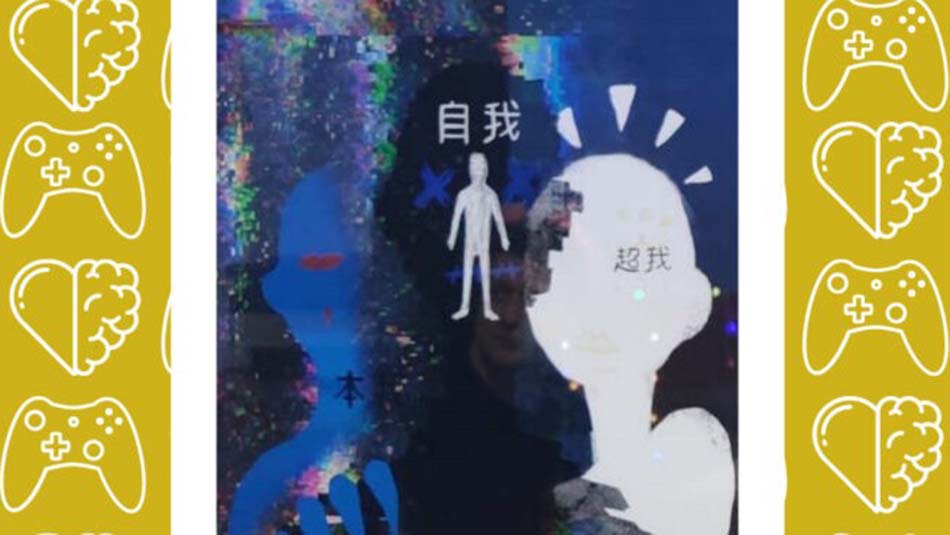
However, it is hard for Andrew to use a few young people’s opinions to convince everyone, but what if the voice of many young people can be heard?
“We were planning on having interviews with gamers, this time, we will record and collect data, and finally make a report that to show people that video games can help, then we went to the Cardiff council for raising funds, and the report is what we need to offer them after everything,” says Andrew.
Somehow, the visit to the Cardiff council reminded him that there is more than one issue here. He always knew but somehow forgot in that period.
“Even within Cardiff Council, who issued the money for us to be able to run this project, there are some people that still have a negative view of gaming,” says Andrew “There are concerns around eyesight, and even the most ridiculous like video game violence leading to real-world violence, even though we know there’s absolutely no link with that whatsoever.”
The opinions of the public on video games already existed for years that video games are just a way to have fun, or worse, a poison to young people.
What Andrew Collins is concerned about is real, according to Pew Research Center, About one-quarter of all adults think most video games are a waste of time, while One-third think some video games are a waste of time and 16% are not sure.
Luckily, he and his team got the founding after all, but he knows that whoever could be helped by games now might be under the pressure from others.
“It is ridiculous, anything whatever is news, people will automatically scare.” says Andrew “in the past, they blame the tv to destroy young people’s lives, even earlier, in the 60s or 70s, they thought comic books are poison to young people, I believe they used to say that radio got the same problem too.”
Since then, Andrew and his team did not put much attention to the report as they used to be, changing the opinion of the public is on the top of the list now. He knows that maybe a report may not be able to change people’s ideas, but the stories he tells are all true stories, they are all real people who live in Cardiff, and the real stories about young people struggling with mental health problems are happening in this city.
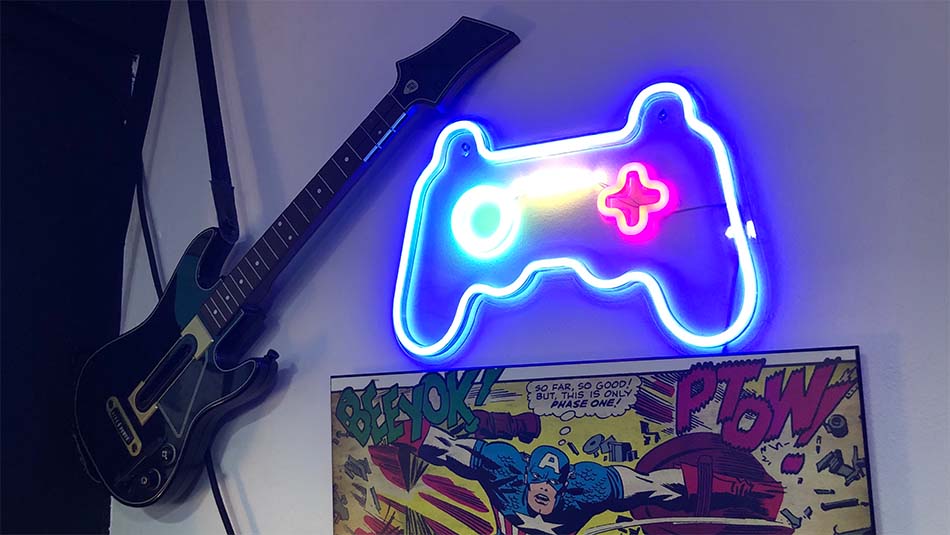
“My personal feeling is that telling real people’s stories is always more powerful for a reader than stats and reports.” says Andrew “You can see, from the people we worked with, how much of a positive impact gaming has had on them, especially with regard to their own mental health, and I think that their stories do resonate with people.”
Speaking of telling stories and expressing someone’s feelings, Andrew and his team came up with a new idea, which is to let the young people paint their own stories, and place them in the gaming café where he first came up with the campaign idea.
“A painting can paint more than a thousand words, we certainly didn’t want them to write in stories or study, because it was important to tell their stories by something visual, we think that will be far more powerful,” says Andrew.
Unfortunately, there was a new issue that follows the idea. The people they have interviewed are so young, some of them have even still not reached 14, so letting them understand the whole thing is a bit difficult.
Also, except from the opinions of the public, keeping them working together is a difficulty too, not to mention some of them are suffering from social anxiety.
For fixing this, Andrew and his team were trying their best to make the young people feel comfortable by decorating the café and helping them to know each other.
Finally, all of this worked, young people whose works had been selected by the team can gather and share their experiences now.
They successfully held the event in April, and as Andrew expect, the interview shows many young people feel their mental health problems became worse during the pandemic.
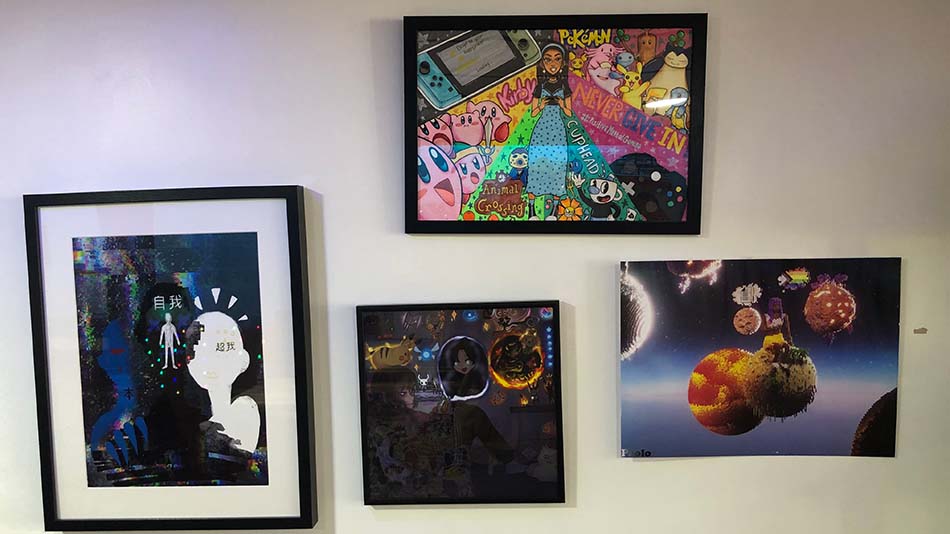
Just like Lilian, many young people feel like they cannot control their life anymore, some are because of the pandemic, some are due to the family issue like parents divorcing, they feel powerless when they face this issue, which grows anxiety inside them, they need to ease their mind and relax for keep living.
Video games, no matter the platform computers or PlayStations, offer them a world that can be controlled by themselves, and that is why Minecraft was mentioned so many times by the interviewees, it’s a game where you can create your world and have an adventure.
Like Kalle Norris, a young interviewee in Cardiff of the campaign says “Games like Life is Strange have all managed to immerse me in their respective universes and have helped me to feel more secure in myself and general life as I have been able to care about and relate to the characters.”
Also, some young gamers who do not have mental health issues are telling stories about how games ease their minds.
“The point of a game is it’s supposed to immerse you in a world where you feel comfortable, or you feel safe. Never feel wrong or ashamed for having games be your version of comfort. People can play golf or swim to feel better but if you decide to train Pokémon in Pallet Town or fight Talon with your team of Overwatch heroes, in my opinion, you’re doing the coolest thing in the world!” says John Austin, a college student in Cardiff.
The report is nearly done in May, the stories of the young gamers who might prove video games can be a solution are going to be told, all they need to do now is hand it
to Cardiff council and see if they can make a change this time.
